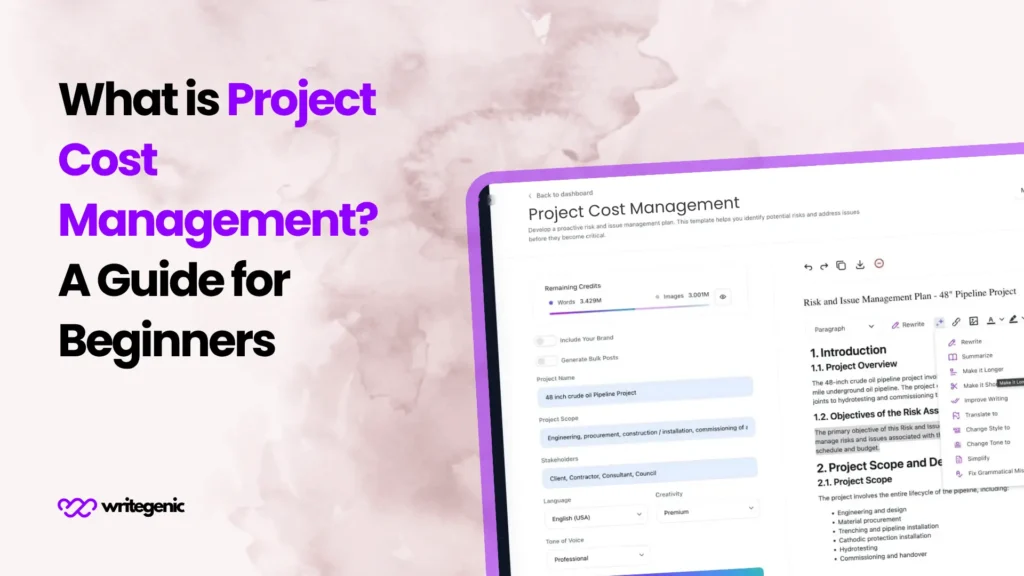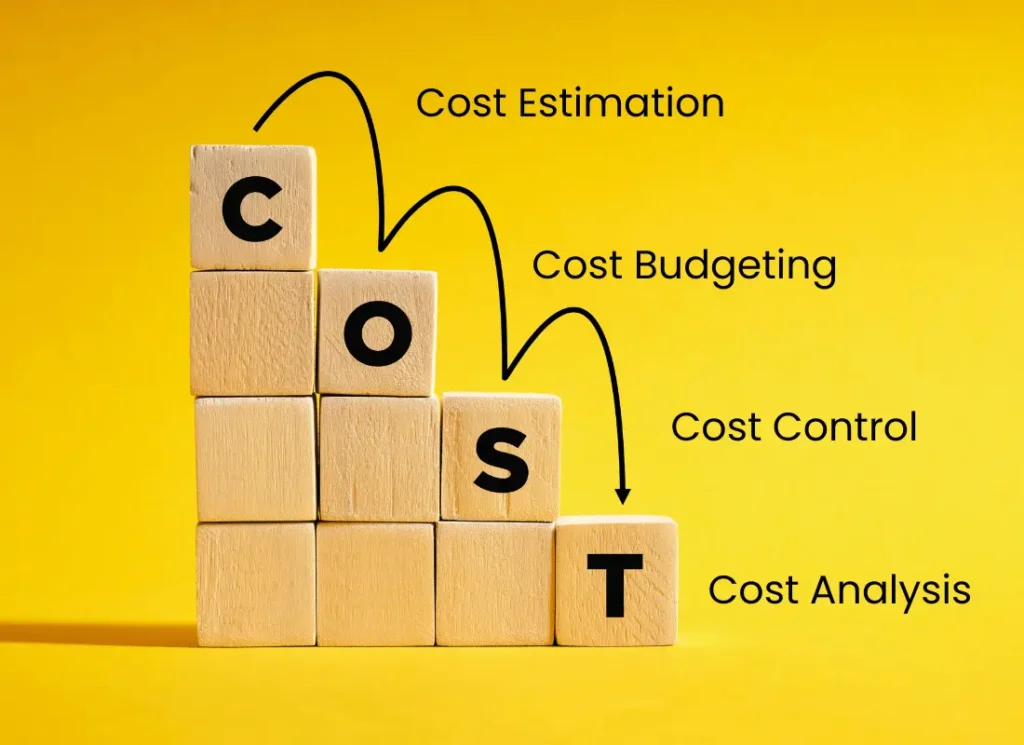What is Project Cost Management? A Guide for Beginners

Project cost management is also a core element of project success and hence prudent management of each dollar in a project. Regardless of whether you want to run a marketing campaign or control a construction project, the key is how to ensure that the project is accomplished on schedule and money wise regardless of all the challenges.
Table of Contents
What is Cost Management in Project Management
Cost management refers to the act of estimation, budgeting and controlling of project expenditures.It guarantees that an enterprise is achieved in the authorized budget plan but with all the goals being achieved.
Good cost management is the response to major questions such as the cost of the project and how controlling costs will be achieved. The absence of it will lead to budget overruns and potential financial mismanagement of the project, which threatens to postpone delivery and make it less profitable.

The Four Key Processes of Project Cost Management
1. Cost Estimation
Cost estimation entails making an estimation of the finances required to carry out the project section. This comprises labor, materials, equipment and overhead. The extrapolations are based on expert judgment, past values of the projects and formulas by project managers.
2. Cost Budgeting
When there are estimates prepared then budgeting can be done to allocate such costs to project activities and project schedules. The budget turns out to be the financial outline of the project and acts as the benchmark of performance measurement.
3. Cost Control
Cost control is defined as the cultivation of the actual cost on a project and subsequently capturing it, comparing it to the baseline, and changing it. It assists in avoiding the over expenditure shifting the project to a financial schedule.
4. Cost Analysis
Cost analysis will assess the project performance as regards to costs. It indicates the areas of spending that are correct or not and it offers predictions to be used whenever making decisions in future.
Creating a Cost Management Plan
A cost management plan is the foundation to the document which specifies the project cost. It provides an assurance of a uniform method in estimating, budgeting, and controlling as well as reporting costs in the lifecycle of the project.
What does a cost management plan include?
- Methods of cost estimation
- Budget development processes
- Cost baseline and control thresholds
- Reporting protocols
- Change control procedures
The plan serves as a financial plan guideline in managing financial aspects of the project in the sense that it makes team members, stakeholders, and financial controllers to be in the same line.
Budget Management in Project Management
Role of Budget Management
Although cost management is the sum of all the activities, budget management is the monitoring and control of spendings during project implementation.
Keeping Projects Within Budget
Good budget management implies that regular comparisons between the actual costs and forecasts are made. This enables the project teams to correct them before small overspending efforts escalate into significant over budget problems.
Tools and Techniques for Effective Cost Management
Project cost management is achieved by appropriate tools and techniques in the cost planning, tracking and control.
Popular Project Cost Management Tools:
- Microsoft Project – Comprehensive cost tracking and reporting.
- Primavera P6 – Widely used in large-scale projects.
- Smartsheet – Cloud-based, user-friendly platform for budgets.
- Wrike & Asana (with integrations) – Useful for tracking task-level costs.
- Writegenic AI – Uses AI to simplify cost estimation and generate accurate financial plans quickly.
Helpful Techniques
Such methods as the earned value management (EVM), cost-benefit analysis, and three-point estimating enable managers to predict financial performance and monitor the extent to which the project is matching up with the cost objectives.
Best Practices for Project Cost Management
Start With Detailed Planning
Precise planning at the beginning ensures that you have surprises in the future. Take into account all expenses including the less apparent ones and obtain averable data to use in estimations.
Monitor and Forecast Regularly
Frequent forecasting guarantees that you can pin the problems and remedy them in time, before they get messy. Actual expenditure should be continuously compared to your budget base.
Engage Stakeholders
Stakeholders should be involved in the process of budgeting early enough to bring transparency. Accountability is enhanced as everyone will know where money is spent, and under what reasons.
Track Metrics
Monitoring such metrics as Cost Performance Index (CPI) and Estimate at Completion (EAC) will give you a good idea of the financial performance of your project.
Common Mistakes to Avoid
Underestimating Costs
Underestimating a project cost is one of the commonest challenges in cost management. This can either be due to absence of research or optimism.
Allowing Scope Creep
As soon as your project is going on, scope creep or an unexpected addition to the project will break your budget. Labor scope changes must always be documented and approved and the budget adjusted.
Lack of Documentation
The inability to document approvals, changes and justifications results in confusion. You should maintain a good financial book that is clear and transparent and able to trace the history of the project.
Miscommunication
Budgeting may be affected by the fact that the expectations may not be aligned. Effective and constant communication between the stakeholders and the project team members is vital in keeping the budget on track.
Conclusion
Project cost management consists of the requirements to succeed in on-time, on-budget, and on-scope project delivery. Project financial management can be mastered by beginners through the appropriate tools and techniques, combined knowledge of every step, and a well-founded cost management strategy.
By being best practice minded and on the lookout of the pitfalls it is possible to use resources effectively and deliver the project objectives without incurring unnecessary cost. The skill of cost management enables the success of the project, but in addition, creates value to your organization over the long-term.
FAQs about Project cost management
What are the steps in cost management
The important methods are cost estimate, budgeting, cost control, and cost analysis. All these develop a structure to control financial performance during the project lifecycle.
How do you prepare a project budget
In order to create a project budget, one should estimate the cost of each piece of work, create a plan of these estimates, and create a cost baseline. Track actual vs. planned cost during execution using a baseline.
What’s the difference between cost control and cost planning
Project cost is planned prior to the beginning of the project. It also creates expectations and budgets. Cost control occurs within the project and it enforces that such funds be utilized as per the plan.
What are the main objectives of project cost management?
The primary goals of project cost management include estimation of the project costs, budget allocations, cost monitoring methods and execution of the project within the budget set and fulfillment of all the objectives.
How does project cost management improve project success?
Project cost management assists in enhancing success by controlling the expenditures, minimising financial risk, streamline resource use and stakeholder satisfaction by delivering predictable performance based on the budget.